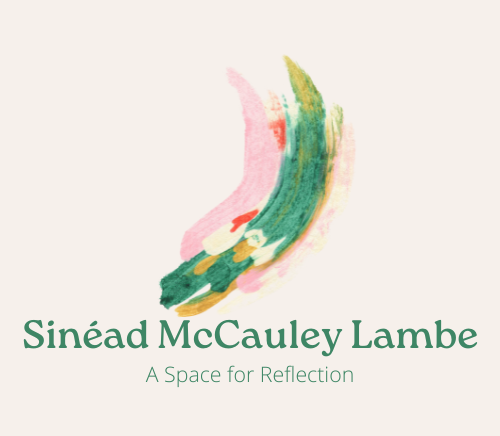On a recent school visit, a student told me that they loved teaching ‘non-academic’ subjects – namely SPHE in this case. They also told me that they enjoyed my lectures very much, because they weren’t so ‘academic’. They like the caring approach. They liked that I lit a candle each week, and that I told them stories about my own experiences. My classes felt more relaxed, and less ‘academic’ than others. That word again. Academic.
I went away and wondered about this idea of what it is to be perceived as an ‘academic’ teacher. Not for the first time. Because ‘academic’ versus ‘non-academic’ appears to be a reoccurring theme in relation to education – whether it be Preschool, Primary, Post-Primary or Third Level. The ‘non-academic’ Primary school teacher who the children love – because they are ‘nice’ and they do lots of Art and PE, or the ‘very academic’ Preschool teacher who has the children writing their names and counting to 50 before they start school. It is my own observation that teachers who focus more on the people and less on the subject, are more likely to be considered as ‘less-academic’ in their teaching. But is it really necessary to delineate? And can’t a teacher be both – ‘academic’ (high standards, subject knowledge) and be non-academic (caring, relational).
In my past work as a Primary teacher, and now as a teacher at Third Level, I try hard to prioritise the ‘people’ aspect of my teaching. Group building and developing self-awareness are central, regardless of the subject or module content. I do this because I fail to see how a group can learn and engage effectively without first becoming a group, or without knowing themselves. My conviction in relation to this stems from Séan Ruth’s (2006) writing on leadership. Ruth talks about creating safety in groups, and suggests that it is the feeling of being ‘unsafe’ that leads to peoples’ inability to listen or have a useful discussion in a group situation. Upon reading this, I was reminded of the many silences and disappointments that I have felt as a teacher, when I seemingly failed to engage the group with whatever it was I was trying to do. I was reminded, then, of that familiar narrative at third level about students’ lack of participation – their reluctance to contribute to group discussions. And I was left wondering… What do we do to ensure that the foundation has been laid to build a ‘safe’ group environment that will enable learning to happen?
Knowing each other’s names is a most basic pre-requisite for any group to feel safe, to feeling a sense of belonging and for learning to occur. This was something that I assumed would have already been established in a small group of students that I taught this year, who were in their second year of their programme. But I discovered after some weeks (and some uncomfortable silences!), that this was not the case. I thought again about Ruth’s ‘unsafe’ spaces and so, I returned to group building and experiential learning with the group – sitting on the floor, clapping each other’s names, singing songs and playing games – understanding and feeling assured all the while, that what I was doing was indeed ‘academic’. And as planned and as hoped, the discussions on the relevant topics and course content ensued. Each week, building in confidence and in conviction, the group became a group. And the group learned.
Unsurprisingly perhaps, given that this experiential and relational approach to learning is firmly grounded in research and confirms that we learn by doing, by experiencing, by building relationships. This is in fact, what we endeavour to teach our student teachers about the art of teaching, is it not? Nonetheless, as the module drew to a close and the evaluations were returned…there it was once again staring back at me– my ‘less-academic’ approach to teaching was commended by more than one student.
This led me to reflect on the messages that our student teachers are being given about what is ‘academic’, and what is ‘good teaching’? Does ‘academic’ only equate to lengthy PowerPoint presentations, prolonged silences, reading from journal articles and writing down notes? Or can ‘academic’ relate to a more experiential approach to teaching and learning? Is it possible that ‘academic’ could mean an understanding that human beings learn also from experience – from their own and from that of others? That we can learn better from a place of self-awareness, and from building relationships with other.
We teach our student teachers about ‘relational pedagogy’, about the importance of knowing the individual child, and about identity and belonging. Perhaps it is worth considering then how we convey just how central and ‘academic’ those concepts are through our own teaching.
I like to think of the ‘academic’ versus ‘non-academic’ teaching style debate in terms of a crème brûlée. It is in fact possible to be both hard (high expectations), and soft (caring), and still be most palatable, all at the same time. As the brilliant Kathleen Lynch articulates clearly in her work, education is care, and care is education.


Leave a comment